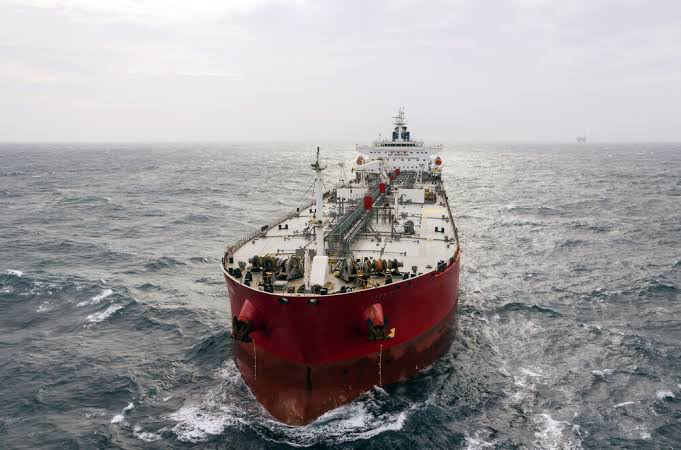Chevron, one of the world’s largest oil companies, has changed its route for transporting oil from Kazakhstan to Asia, avoiding the Red Sea where Yemen’s Houthi rebels have stepped up attacks on shipping.
The US-based company is sending cargoes of CPC Blend oil, a light crude grade produced in Kazakhstan, around Africa’s Cape of Good Hope rather than via the Suez Canal, according to three industry sources and LSEG ship-tracking data.
The decision comes as the Iranian-aligned Houthis have intensified their missile and drone strikes on vessels in the Red Sea, despite US-led air strikes on their positions in Yemen. The rebels say they are targeting ships linked to Israel, their enemy and a close ally of the US.
The Red Sea is the shortest sea route between Europe and Asia and a vital corridor for global trade. About 15% of the world’s seaborne oil passes through the Suez Canal, which connects the Red Sea and the Mediterranean Sea.
However, the rising security risks and soaring freight costs have prompted some shipping companies to avoid the Red Sea and opt for a longer and more expensive route around southern Africa.
Chevron’s move is a sign of how the conflict in Yemen, which has killed tens of thousands of people and triggered the world’s worst humanitarian crisis, is affecting the global oil market and the energy security of Asia, the largest consumer of Middle Eastern oil.
CPC Blend is a popular crude grade among Asian refiners because of its high quality and low sulfur content. It is mostly produced by Tengizchevroil, a joint venture between Chevron, ExxonMobil, KazMunayGas, and LukArco.
Chevron declined to comment on specific vessels but said it was monitoring the situation in the Red Sea and the Middle East.
“Chevron will continue to actively assess the safety of routes in the Red Sea and throughout the Middle East and make decisions based on the latest developments,” the company said in reply to Reuters’ requests for comment.
According to the LSEG data, Chevron shipped at least two cargoes of CPC Blend oil to Asia around Africa in January, while Russian-sourced CPC Blend continues to sail via the Red Sea.
The data also showed that the total CPC Blend supplies to Asia have more than halved, to 550,000 metric tons in January, from 1.2 million tons in December.
The Caspian Pipeline Consortium (CPC) is the main exporter of Kazakhstan’s crude oil. The main shareholders in CPC are Russian pipeline operator Transneft at 24%, Kazakhstan’s KazMunayGas at 19%, and the Chevron Caspian Pipeline Consortium Company at 15%.
The CPC pipeline, which runs from the Tengiz oil field in Kazakhstan to the Russian Black Sea port of Novorossiysk, has a capacity of 1.4 million barrels per day (bpd).
The pipeline is expected to receive more oil from the giant Kashagan field in the Caspian Sea, which has yet to start exporting after several delays due to technical problems.
The CPC Blend oil is one of the alternatives for Asian refiners who are looking for light crude grades to replace the Iranian oil that has been cut off by the US sanctions.
The US and its allies have been trying to contain Iran’s nuclear ambitions and its support for militant groups in the region, such as the Houthis.
The UN and other international actors have been calling for a peaceful resolution of the Yemeni conflict, which has been raging since 2014 when the Houthis ousted the internationally recognized government from the capital Sanaa.
The conflict has also created a humanitarian catastrophe, with millions of people facing famine, disease, and displacement.
The UN has recently appointed a new special envoy for Yemen, Hans Grundberg, who has vowed to revive the stalled peace talks and bring an end to the suffering of the Yemeni people.
Source: Reuters



